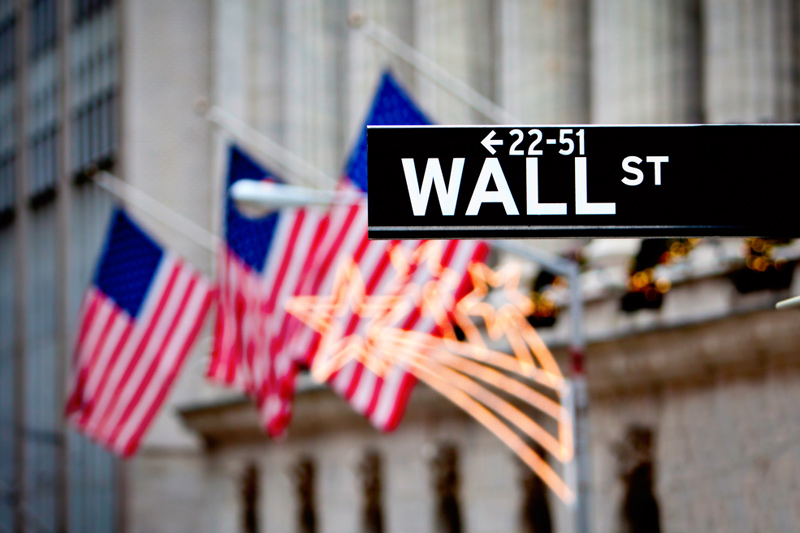Investing.com - Stronger-than-expected data out of the U.S. service sector and a solid December jobs report sent U.S. stock prices climbing on Friday.
At the close of U.S. trading, the Dow Jones Industrial Average finished up 0.33%, the S&P 500 index was up 0.49%, while the Nasdaq Composite index rose 0.04%.
In the U.S. earlier, the Bureau of Labor Statistics reported the U.S. economy added 155,000 nonfarm payrolls in December, beating market calls for the economy to create 150,000 new jobs.
In addition, the U.S. employment rate remained unchanged at 7.8% last month, though markets had hoped for a decline to 7.7%.
Meanwhile, the Bureau of Labor Statistics revised October's figures to 137,000 from 138,000 new jobs and hiked November's figure to 161,000 from 146,000.
Elsewhere, the U.S. Institute of Supply Management reported earlier that its non-manufacturing index improved to 56.1 in December from 54.7 in November, beating expectations for a rise to 54.2.
While the data failed to send investors charging into a full-fledged risk-on trading session due to question marks looming on U.S. fiscal and monetary horizons, the numbers were strong enough to send investors snapping up stocks, viewed by many as nicely priced these days.
Congress will debate raising the government's debt ceiling possibly in February.
Fears that lawmakers may stage a repeat performance of 2011's debt-ceiling debates, which nearly threw the country into default thanks to brinkmanship, kept some investors sticking with safe-haven dollar positions, especially on sentiment the jobs market is not improving fast enough to suggest the economy may be returning to its pre-recession health.
Uncertainty as to when the Federal Reserve may wind down its monetary stimulus programs also pushed down the pair.
The Fed revealed in the minutes of its December monetary policy meeting that some members are ready to consider paring back the U.S. central bank's monthly USD85 billion bond-buying program, which weakens the greenback as a side effect.
Leading Dow Jones Industrial Average performers included Alcoa, up 2.09%, Walt Disney, up 1.91%, and JPMorgan Chase & Co., up 1.77%.
The Dow Jones Industrial Average's worst performers included Microsoft, down 1.87%, McDonald's Corp., down 0.86%, and Merck, down 0.85%.
European indices, meanwhile, finished higher.
After the close of European trade, the EURO STOXX 50 rose 0.30%, France's CAC 40 rose 0.24%, while Germany's DAX 30 finished up 0.26%. Meanwhile, in the U.K. the FTSE 100 finished up 0.70%.
At the close of U.S. trading, the Dow Jones Industrial Average finished up 0.33%, the S&P 500 index was up 0.49%, while the Nasdaq Composite index rose 0.04%.
In the U.S. earlier, the Bureau of Labor Statistics reported the U.S. economy added 155,000 nonfarm payrolls in December, beating market calls for the economy to create 150,000 new jobs.
In addition, the U.S. employment rate remained unchanged at 7.8% last month, though markets had hoped for a decline to 7.7%.
Meanwhile, the Bureau of Labor Statistics revised October's figures to 137,000 from 138,000 new jobs and hiked November's figure to 161,000 from 146,000.
Elsewhere, the U.S. Institute of Supply Management reported earlier that its non-manufacturing index improved to 56.1 in December from 54.7 in November, beating expectations for a rise to 54.2.
While the data failed to send investors charging into a full-fledged risk-on trading session due to question marks looming on U.S. fiscal and monetary horizons, the numbers were strong enough to send investors snapping up stocks, viewed by many as nicely priced these days.
Congress will debate raising the government's debt ceiling possibly in February.
Fears that lawmakers may stage a repeat performance of 2011's debt-ceiling debates, which nearly threw the country into default thanks to brinkmanship, kept some investors sticking with safe-haven dollar positions, especially on sentiment the jobs market is not improving fast enough to suggest the economy may be returning to its pre-recession health.
Uncertainty as to when the Federal Reserve may wind down its monetary stimulus programs also pushed down the pair.
The Fed revealed in the minutes of its December monetary policy meeting that some members are ready to consider paring back the U.S. central bank's monthly USD85 billion bond-buying program, which weakens the greenback as a side effect.
Leading Dow Jones Industrial Average performers included Alcoa, up 2.09%, Walt Disney, up 1.91%, and JPMorgan Chase & Co., up 1.77%.
The Dow Jones Industrial Average's worst performers included Microsoft, down 1.87%, McDonald's Corp., down 0.86%, and Merck, down 0.85%.
European indices, meanwhile, finished higher.
After the close of European trade, the EURO STOXX 50 rose 0.30%, France's CAC 40 rose 0.24%, while Germany's DAX 30 finished up 0.26%. Meanwhile, in the U.K. the FTSE 100 finished up 0.70%.
